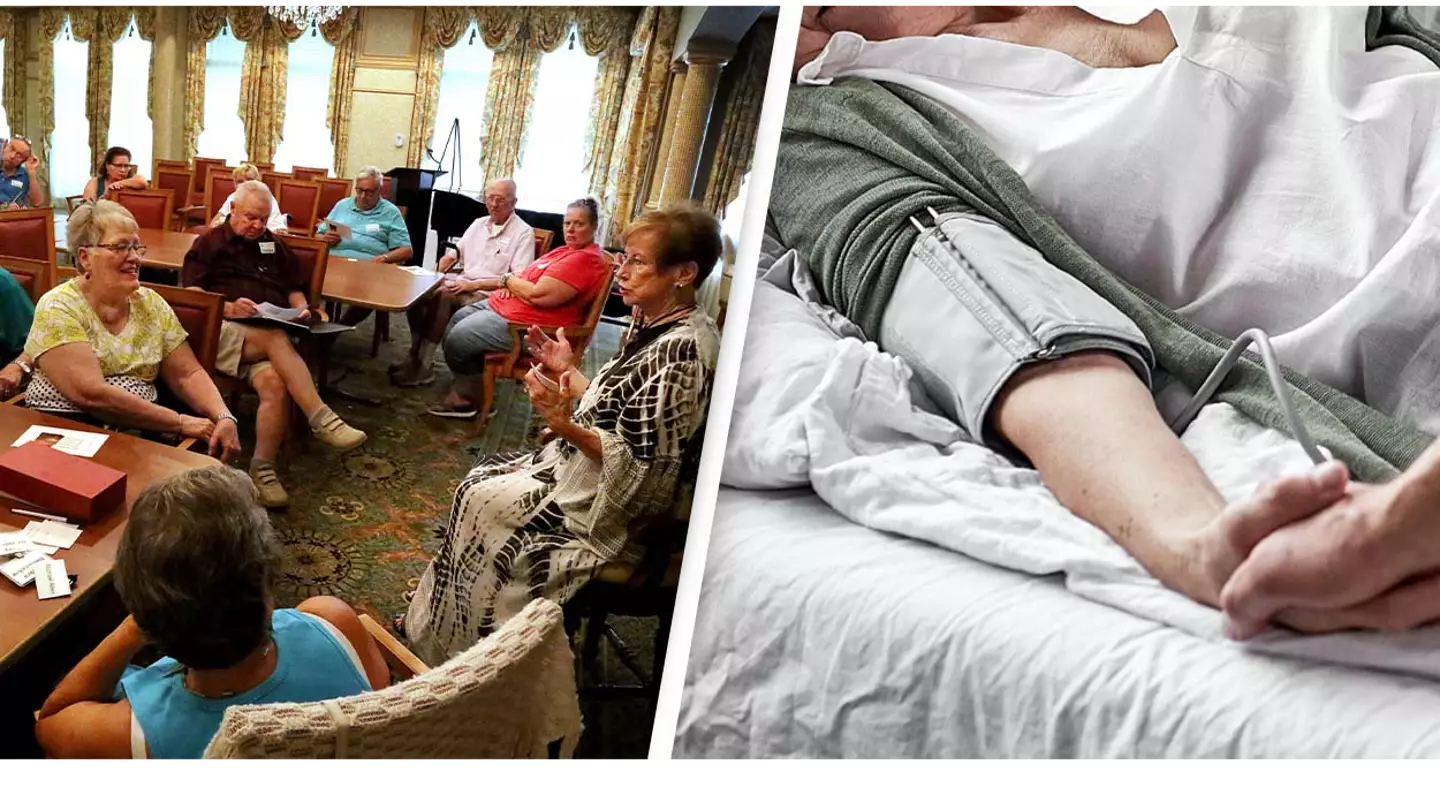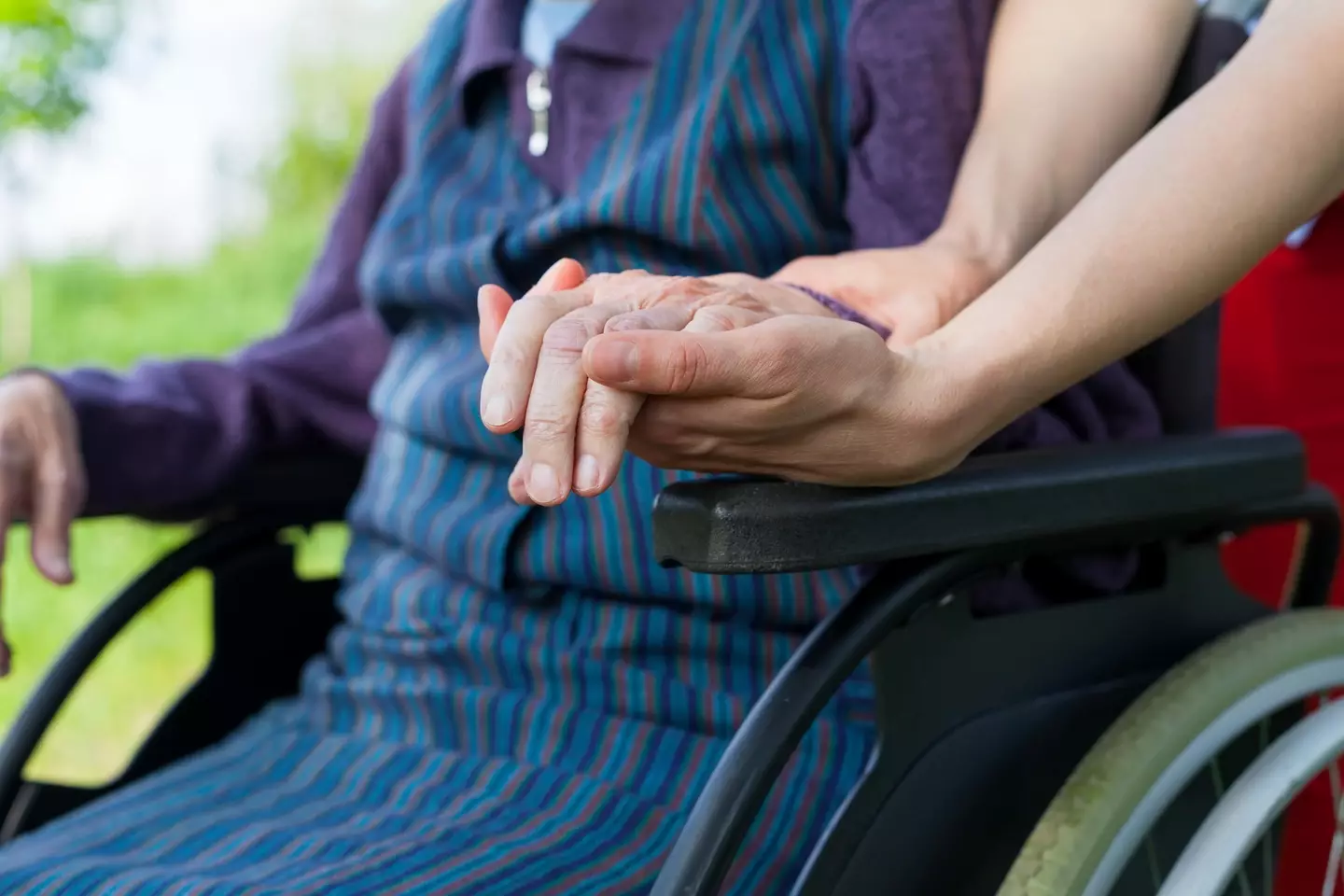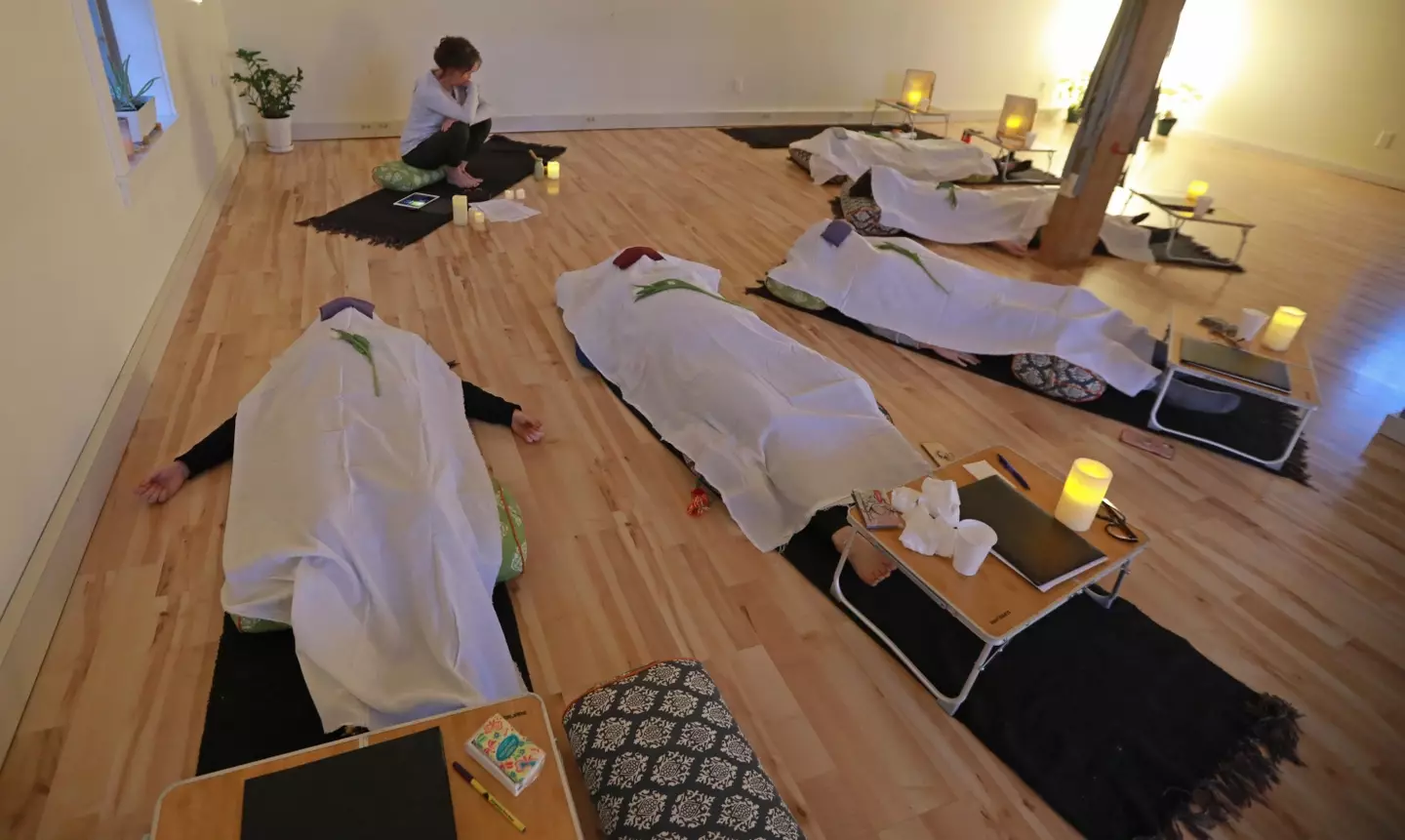
While many people have heard of birth doulas, there's less awareness that there are trained companions whose job it is to guide you through the end of your life, too.
Death doulas (or end-of-life doulas) do just that, and the practice is on the rise in the United States, as the Covid-19 pandemic forces more people to face up to their own mortality.
'For the first time in a generation, everyone is experiencing the possibility that death may touch their lives—not someday, but now,' Ann Burns, president of the American Trust and Estate Council told TIME.
With healthcare resources stretched to breaking point, many of those nearing the end of their lives are turning to doulas - non-medical professionals trained to provide support and guidance for those facing death - as well as relatives of the dying.
Advert

'It's not for the faint of heart,' doula Alua Arthur explained to Refinery29 about the process. 'It's an opportunity to really think about the body's eventual decline, and to go there to see what the discomfort is, so that we can then talk about that and process that. It’s intended to soften the fear around death.'
Many doulas also act as advocates for the dying, with Bay Area-doula Oceana Sawyer telling the Los Angeles Times that she frequently has to push back on racial bias experienced by her Black patients.
'I had to convince the hospice nurse to give her [more] morphine,' Sawyer said of one of her patients. 'I didn’t want her to be fighting for air. That doesn’t happen when I work with white people.'
Advert
TIME reports that in the past two years membership of the National End-of-Life Doula Alliance has increased from around 200 to over 1,000, while enrollment in the University of Vermont training programme for the practice has tripled.
With as many as 866,000 American having died from Covid-19 since March 2020, end-of-life doulas say that the pandemic has made it harder for people to ignore the idea of death, as is often the case in western society.

'The awareness of death was in all of our faces,' said Suzanne O’Brien, who offered training for more than 1,000 end-of-life doulas in 2021 alone. 'Whether we wanted to look away or not, we really couldn’t.'
Advert
As well as providing care for the dying, doulas also help to facilitate more honest conversations around death, with Arthur saying 'whenever I talk about my work, people always talk to me about death... I think my work gives people permission to talk about this thing that we all want to talk about anyway, yet we're just not doing.'
If you’ve been affected by coronavirus and want up to date advice, visit the Gov.uk help page here. If you need medical help call NHS 111 or visit online
If you have experienced a bereavement and would like to speak with someone in confidence contact Cruse Bereavement Care via their national helpline on 0808 808 1677
Topics: Health, Coronavirus, US News
